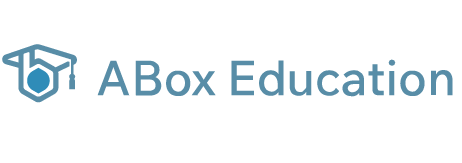Ivy League Under Fire: Antitrust Investigation Into Tuition Price-Fixing and What It Means for Students
- Apr 14, 2025
- 3 min read
Congress Launches Antitrust Probe Into Ivy League Schools' Tuition Policies
In April 2025, congressional Republicans launched an antitrust investigation into all eight Ivy League schools, including Harvard, Yale, and Princeton, over allegations of collusion in tuition pricing and financial aid practices. Lawmakers argue that these elite institutions may have violated the Sherman Antitrust Act by coordinating strategies that suppress competition and inflate costs for students.
As reported by The Harvard Crimson, the House and Senate Judiciary Committees have formally requested internal communications from these schools dating back to 2019. Their goal? To determine whether universities conspired to set tuition and aid policies in ways that hinder affordability and fairness.

Focus of the Investigation: Tuition Price-Fixing and Financial Aid Coordination
According to Bloomberg, lawmakers are scrutinizing three major areas:
Tuition Pricing Strategies: Were schools collaborating to standardize tuition hikes?
Need-Based Aid Models: Did they coordinate on how much aid to offer, and to whom?
Admissions Mechanisms: Were tools like Early Decision or legacy preferences being used to manipulate price and demand?
The investigation also questions whether institutions used selective aid offers to "price discriminate" — favoring full-pay students or using aid as a yield management tool rather than a mechanism for equitable access.
How This Affects Domestic and International Students
Domestic Students
Higher Cost of Attendance: If price-fixing occurred, students may have been paying artificially inflated tuition without meaningful price competition.
Unfair Financial Aid Distribution: Aid packages may have been shaped by institutional strategy rather than actual student need.
International Students
Limited Access to Aid: Most Ivies already offer limited financial aid to international students. Coordinated policies could further restrict access or reduce competitiveness.
Increased Tuition Pressure: International students, often ineligible for federal aid, are especially vulnerable to high and rising tuition costs.
What the Numbers Reveal
The average cost of attendance at Ivy League schools has increased by 23% since 2019, now averaging over $83,000/year including tuition, housing, and fees.
Less than 5% of financial aid at most Ivies goes to international students, despite their making up around 12-15% of total enrollment.
More than 50% of U.S. college students now graduate with debt—yet Ivy League institutions often boast large endowments, totaling over $200 billion collectively.
Expert Opinions and Public Reactions
Education policy experts have long questioned whether elite universities truly compete in pricing—or simply maintain a “prestige premium.”
In a recent Politico article, critics argue that while universities claim their aid models promote access, coordinated practices may actually reduce affordability and student choice.
Public response has been sharp. Student groups, particularly those focused on economic equity, are demanding increased transparency in aid algorithms and more independent oversight of university pricing structures.
Unique Challenges for International Students
Reduced Financial Flexibility: International students often have fewer loan or scholarship options and rely heavily on institutional grants.
Uncertainty in Admissions: If Ivy League schools revise their aid or tuition policies mid-cycle, it could create confusion and financial instability for applicants abroad.
Visa & Policy Sensitivity: As tuition costs rise, visa policies may become more selective, and proof of financial capability may become harder to meet.
Conclusion: What Comes Next for Students and Families?
This investigation underscores a growing need for transparency and reform in elite college pricing. Whether you’re a domestic applicant worried about student debt, or an international family navigating U.S. admissions, the potential for coordinated price manipulation should raise red flags.
If found guilty of collusion, Ivy League institutions may be forced to overhaul how they structure tuition and aid. That could ultimately lead to more competitive pricing, fairer financial aid policies, and expanded access for students from all backgrounds.




Comments